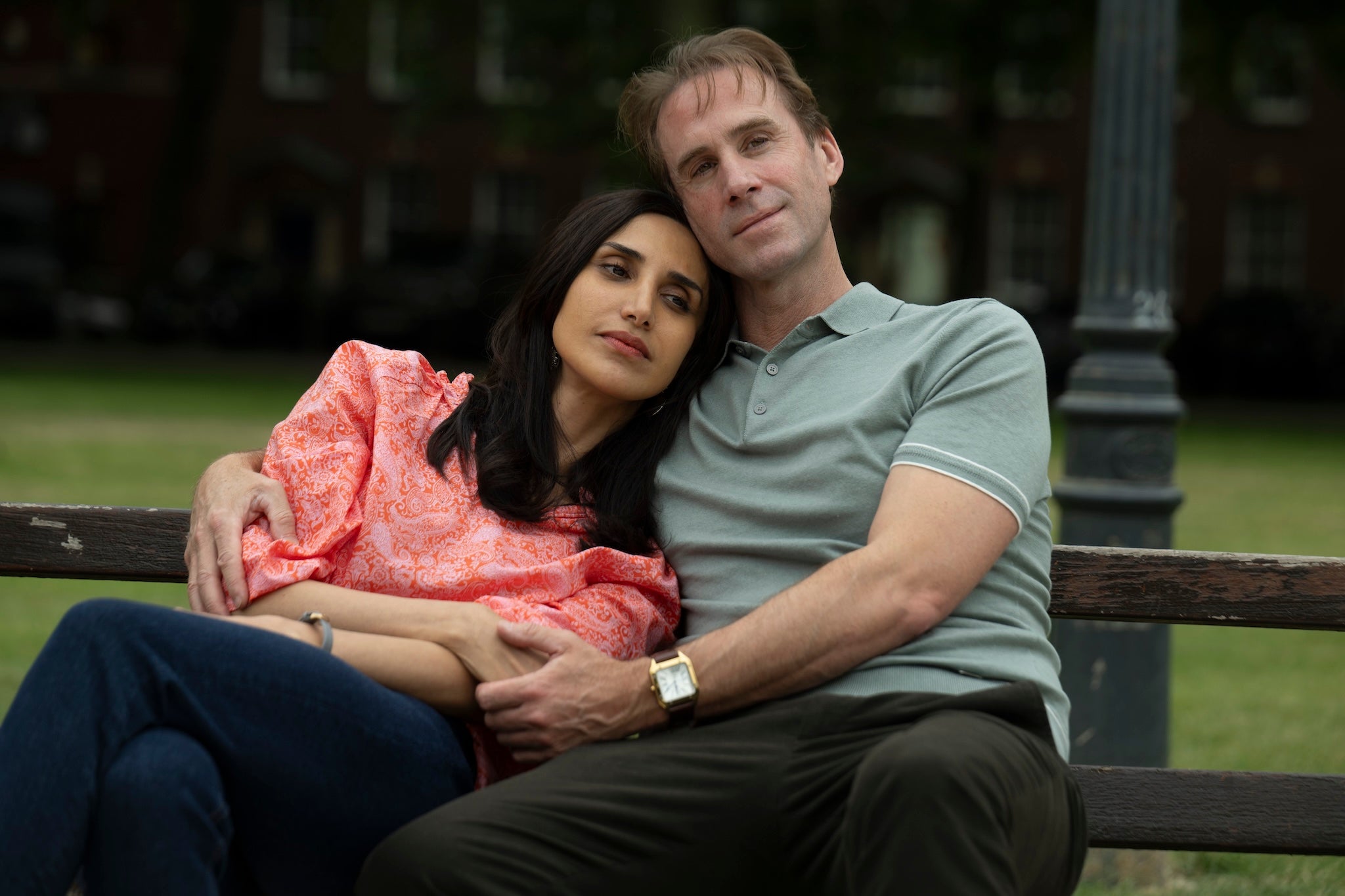- Culture
- TV & Radio
- Reviews
Narges Rashidi is brilliant at conveying the silent trauma that pervades this BBC drama series
Sean O'GradySunday 23 November 2025 22:10 GMTComments
 CloseTrailer for BBC's Prisoner 951
CloseTrailer for BBC's Prisoner 951
Get the latest entertainment news, reviews and star-studded interviews with our Independent Culture email
Get the latest entertainment news with our free Culture newsletter
Get the latest entertainment news with our free Culture newsletter
 Email*SIGN UP
Email*SIGN UPI would like to be emailed about offers, events and updates from The Independent. Read our Privacy notice
Without being at all flippant about Prisoner 951, the dramatisation of the story of Nazanin Zaghari-Ratcliffe, abducted and held hostage by the Iranians for six years on spying charges, there is one sequence of grim comedy.
It is 2017 and we see Nazanin (Narges Rashidi), already imprisoned for over a year, in a special jail for female political prisoners, a fairly easy-going situation compared to some of the other more brutal places where she’d been kept in solitary confinement. Suddenly there’s a commotion around the television. “They’re talking about me,” Nazanin notices. She goes over to see Iranian state TV broadcasting a clip of Boris Johnson, the then British foreign secretary, giving evidence to a Commons committee. You may recall his foolish, blundering remarks: “When we look at what Nazanin Zaghari-Ratcliffe was doing, she was simply teaching people journalism, as I understand it, at the very limit.”
Nazanin, having already sustained a year of mental torture by the notorious Revolutionary Guard, as sadistic and misogynistic a secret police as the world has seen, is suddenly frozen in a moment of unspoken, unspeakable despair as the camera lingers and time slows down; Rashidi conveys Nazanin’s silent trauma brilliantly. After so much deception and manipulation at the hands of the Iranians, here she is now witnessing the ultimate betrayal of her as a British citizen.
Nazanin had always maintained, whatever the coercion, that she had taken her two-year-old daughter to see the little girl’s grandparents. Her work as a project manager at the Thomson Reuters Foundation – the charity, not the news wire – was unrelated to her visit. The Iranians either didn’t understand the distinction, or chose not to in order to acquire a valuable hostage, a bargaining chip. Now, in one underprepared sentence, Johnson was effectively calling her a liar and a spy. It’s too awful to reflect on, though we have to. (Mercifully, Johnson is left uncast. He’s buffoon enough without needing an actor to camp things up.)
The humour comes a little later. Not long after Johnson’s idiocy – and partly to try to make amends – he flies into Tehran for talks with the ayatollahs and their allies. Again, we see the women in prison watching the footage of him shaking hands with their tormentors, but that’s not why they cannot believe what they are seeing: “Nazanin, how can this man be important? He looks like he fell out of a bush.”
It is a rare moment of relief, both for Nazanin and the audience. If Prisoner 951 is anything then it’s a Solzhenitsyn-esque study in resilience, both on her part, but also that of her husband Richard Ratcliffe (an intense and moving performance by Joseph Fiennes), their daughter Gabriella (charmingly played by Mana Sayyah in her youth and Ava Rose later on) and their families (with Nicholas Farrell supplying a reliably upper middle class father-in-law).
The excruciating passage of time is captured brilliantly, and you lose count of the number of times Nazanin is tormented by dashed hopes. Promises of imminent release and a return to Britain for Gabriella are broken. Appeals to bogus “courts” are lost. Richard and Nazanin both go on hunger strikes, and there’s never much of a gap between scenes where one or both of them lapse into utter, suicidal despair – but their bond is unbreakable, and portrayed in the many flashbacks to their early romance and marriage.
 Rashidi opposite Joseph Fiennes as Richard Rafcliffe (BBC/Dancing Ledge)
Rashidi opposite Joseph Fiennes as Richard Rafcliffe (BBC/Dancing Ledge)All the while, Nazanin is plagued by attempts from the Iranian authorities to force a false confession out of her – attempts that she eventually succumbs to. This is how Nazanin eventually achieves release, set against the wider backdrop of the British government finally paying a £400m debt to Iran.
The Revolutionary Guards, whether the older rude martinets in cheap suits, the younger men in sunglasses and leather jackets, or their fanatical female accomplices in traditional chadors, turn long stretches of the saga into horrific mini-thrillers. By the time the BBC series comes to an end, you have to conclude that paranoia is both contagious and the one thing that holds contemporary Iran together.

Watch Apple TV+ free for 7 day
New subscribers only. £9.99/mo. after free trial. Plan auto-renews until cancelled.
Try for freeADVERTISEMENT. If you sign up to this service we will earn commission. This revenue helps to fund journalism across The Independent.

Watch Apple TV+ free for 7 day
New subscribers only. £9.99/mo. after free trial. Plan auto-renews until cancelled.
Try for freeADVERTISEMENT. If you sign up to this service we will earn commission. This revenue helps to fund journalism across The Independent.
With women such as human rights activist and Nobel Peace Prize winner Narges Mohammadi, who had been one of Nazanin’s fellow inmates, and the defiant insolence of the young, we know that the regime in Tehran cannot last forever. Just as Nazanin’s sufferings eventually passed, so too will the sufferings of the nation she still loves.
‘Prisoner 951’ is available in full on BBC iPlayer from 6am on Sunday 23 November, and airs on BBC One from 9pm that night
More about
Nazanin Zaghari-RatcliffeBBCBoris JohnsonJoin our commenting forum
Join thought-provoking conversations, follow other Independent readers and see their replies
Comments



